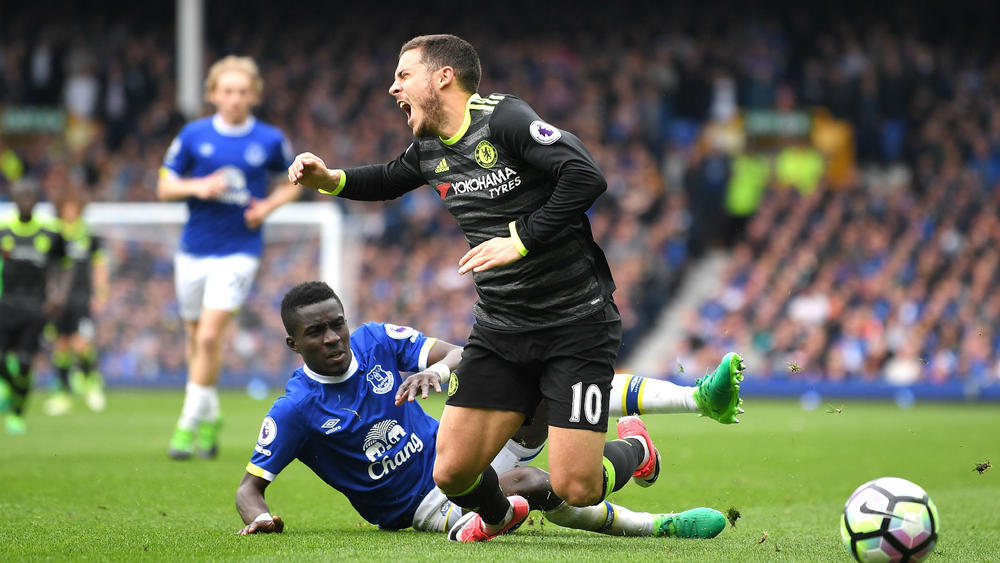Koeman marvels at Gueye for controlling Hazard
Idrissa Gueye "controlled" Eden Hazard in a brilliant man-marking display in Everton's defeat to Chelsea, according to Ronald Koeman.

Ronald Koeman lauded Idrissa Gueye for controlling Eden Hazard in an "outstanding performance" despite Everton's 3-0 defeat to Chelsea on Sunday.
Antonio Conte's league leaders ultimately ran out comfortable winners at Goodison Park, but Everton made it tough for most of the match with Chelsea's clinical edge the difference.
Pedro, Gary Cahill and Willian got the goals, but Hazard was rather muted as Gueye man-marked the Belgium star throughout and Koeman hailed his midfielder's effective display.
"He [Gueye] did really well," Koeman told reporters. "It is very difficult to mark a player like Eden Hazard.
"I thought he controlled him, he was aggressive and we stopped one of the strengths of Chelsea. It was an outstanding performance by Gueye."
Although Everton ultimately succumbed to a comprehensive defeat, Koeman was adamant that the scoreline flattered Chelsea.
"I think we did well," he said. "We started well and we were a bit unlucky in the first minute by hitting the post. We made some mistakes in possession and that made them really dangerous at times in the first half, but I think we did a good job up until it went 1-0.
Get FourFourTwo Newsletter
The best features, fun and footballing quizzes, straight to your inbox every week.
"After that, it makes it more difficult to create chances and then, of course, if they get a little bit more space then they are a team who can kill the game with the second goal.
"The third goal was high quality, [showing] the offensive side of Chelsea. Maybe we didn't deserve the defeat by three goals, but that is football.
"I don't think physically they had too much for us, but they were confident in the way they defended their lead, they were the more experienced team and they managed to go 2-0 up.
"They waited for space, waited for chances. I think comparing our offensive play to theirs was the difference. They were really clinical."
